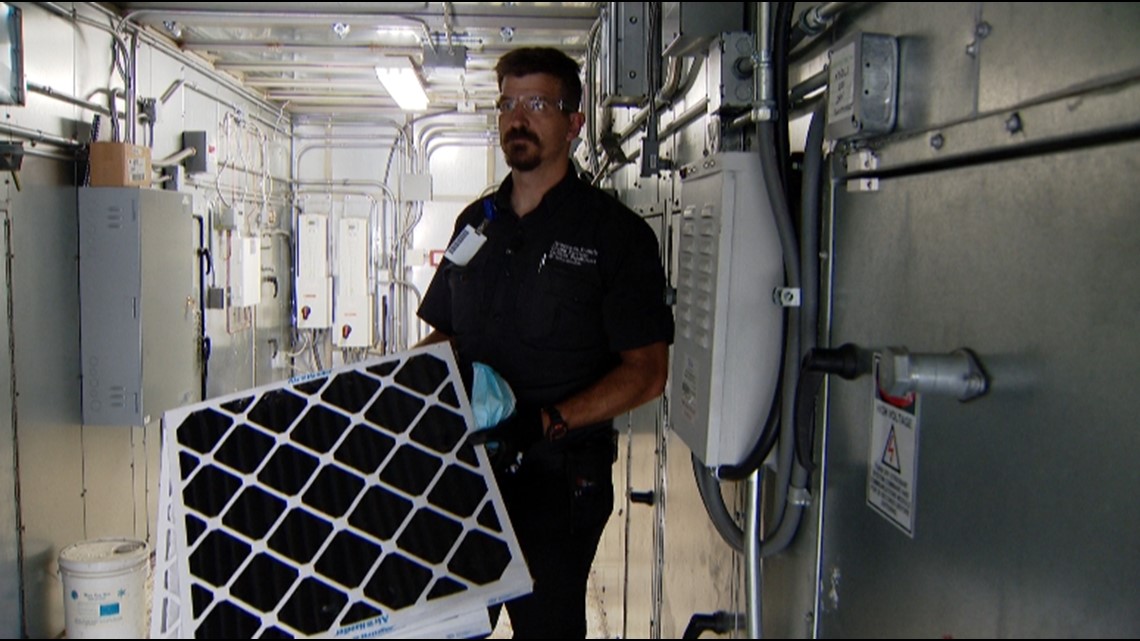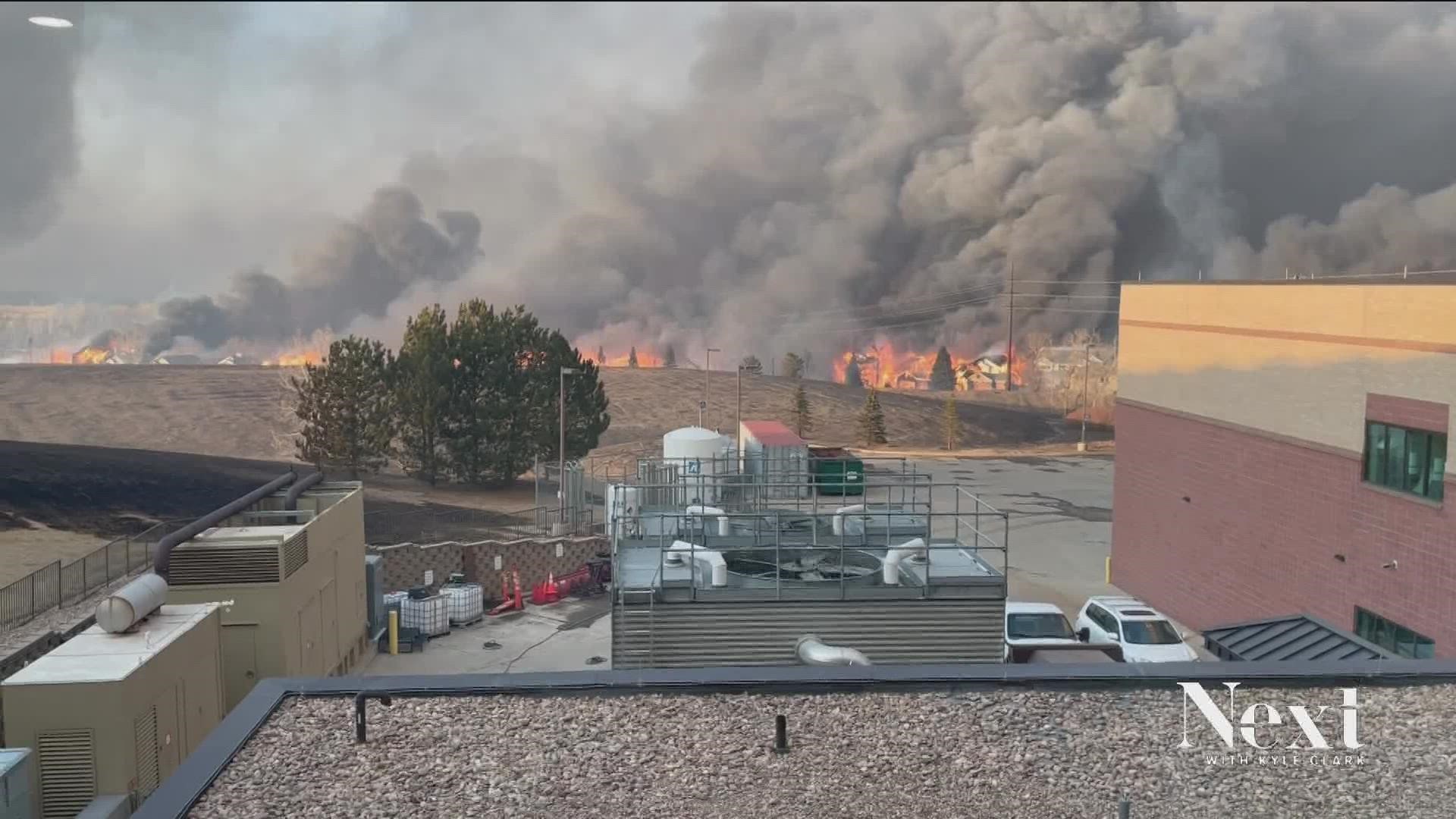COLORADO SPRINGS, Colo. — Of all the important places inside a hospital, preparing for a wildfire starts on the roof.
Keeping a hospital safe from the growing threat of wildfires in Colorado begins with keeping the air clean. When the Marshall Fire tore through Boulder County, Avista Adventist Hospital in Louisville survived, but had to close because of all the damage the smoke caused inside. Now, hospitals around the state are changing how they prepare for fires.
"This draws the air in from the outside and pushes it in through the entire hospital," said Mark Lendzion, a maintenance technician at Penrose Hospital in Colorado Springs, as he pointed to an air handling system. "It comes from the outside as unfiltered outside air, and then we filter it condition it, heat it or cool it, and then humidify it."
On the roof of Penrose Hospital, Lendzion shows off the hospital’s new line of defense. When a wildfire starts nearby, the first thing he does now is make sure the smoke can’t get in the building.
"This is normally what we’d use. It just has a pleated filter here. And then we have a carbon filter which is in a sealed container and is activated charcoal," said Lendzion, holding up two air filters. "The charcoal filter gets rid of any big particulates in the air. It also mitigates the smell."


During the Marshall Fire, Avista had to evacuate all its patients, taking the sickest out one-by-one using stretchers. The hospital survived but was closed for weeks because of smoke damage inside.
Centura Health, which runs Avista and other hospitals nationwide, new filters in all of their locations to keep out smoke.
"Carbon filters were not something that were a normal stock item. It is something now that all of the facilities will be having on hand for these instances," said Danna McFadden, fire and life safety specialist at Penrose Hospital. "Because of the Marshall Fire, we were more prepared at Penrose."
McFadden already had to use the new filters at Penrose down in the Springs when a fire started nearby.
RELATED: 'It was something out of a nightmare': NICU nurse recounts evacuation from Louisville hospital
"We already had those here and were able to quickly deploy them to mitigate the smell of the smoke and particles from coming in," said McFadden. "Protecting the air, ensuring that the air quality in the building is fit to be able to take care of patients."
Centura has had to implement its newly revised fire plans several times since the Marshall Fire, from Colorado Springs to Durango. Some hospitals used the new air filters, while others were also put on pre-evacuation notice because of nearby fires.
"We assess, what are our biggest fears, what are our biggest concerns in the community? I would say that every year fire has been at the top of that list," said Olson. "It’s come in great use. Even here on May 12, in Colorado Springs we had two significant fires."
Emergency managers at Centura hospitals now listen to emergency radios constantly, especially on Red Flag days. They learned during the Marshall Fire that it’s important to be in contact with fire departments as soon as possible.
While hospitals used to prepare for people coming in injured from wildfires, now they’re preparing to defend the physical hospitals from flames as they become more common in urban areas.
In the worst case scenarios, keeping the air clean is a priority and a lesson learned the hard way.
SUGGESTED VIDEOS: Full Episodes of Next with Kyle Clark

